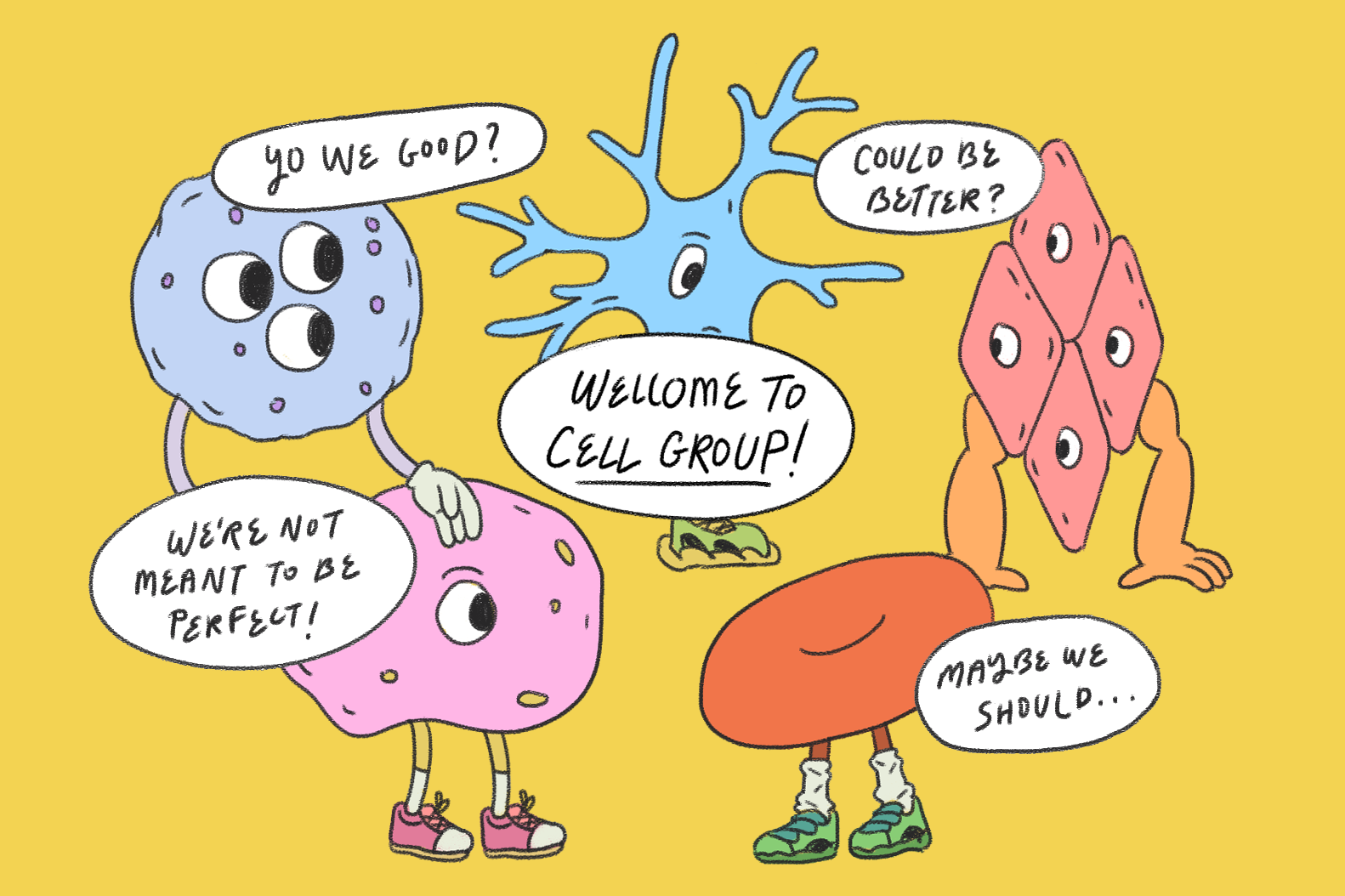“If you were given a chance to pick seven people from the ministry to form your ideal cell group, who would you choose?”
That was the question I felt God lay on my heart some time ago. I thought a long time about the question, enough to conclude that it genuinely does not matter, because no matter how well I could get along with this self-formed, ideal cell group — no cell group is perfect.
See, one common deception sounds like this: If I am in a cell group with people I can “click” with, all would be well. That’s false. If that is our idea of a perfect cell group — minimal conflicts, little differences, no discomfort and challenges — then, well, let me tell you something.
That’s never going to happen.
The reality is that we are all imperfect humans, which is why conflicts will still happen even if we are placed in a cell group with people we can get along with.
On top of that, if we are always sticking around people who are similar to us and we are comfortable with, then other issues can all too easily arise.
When the group gets too familiar with each other, the group may have a tendency to become exclusive or stagnant due to the comfort they choose to stay in.
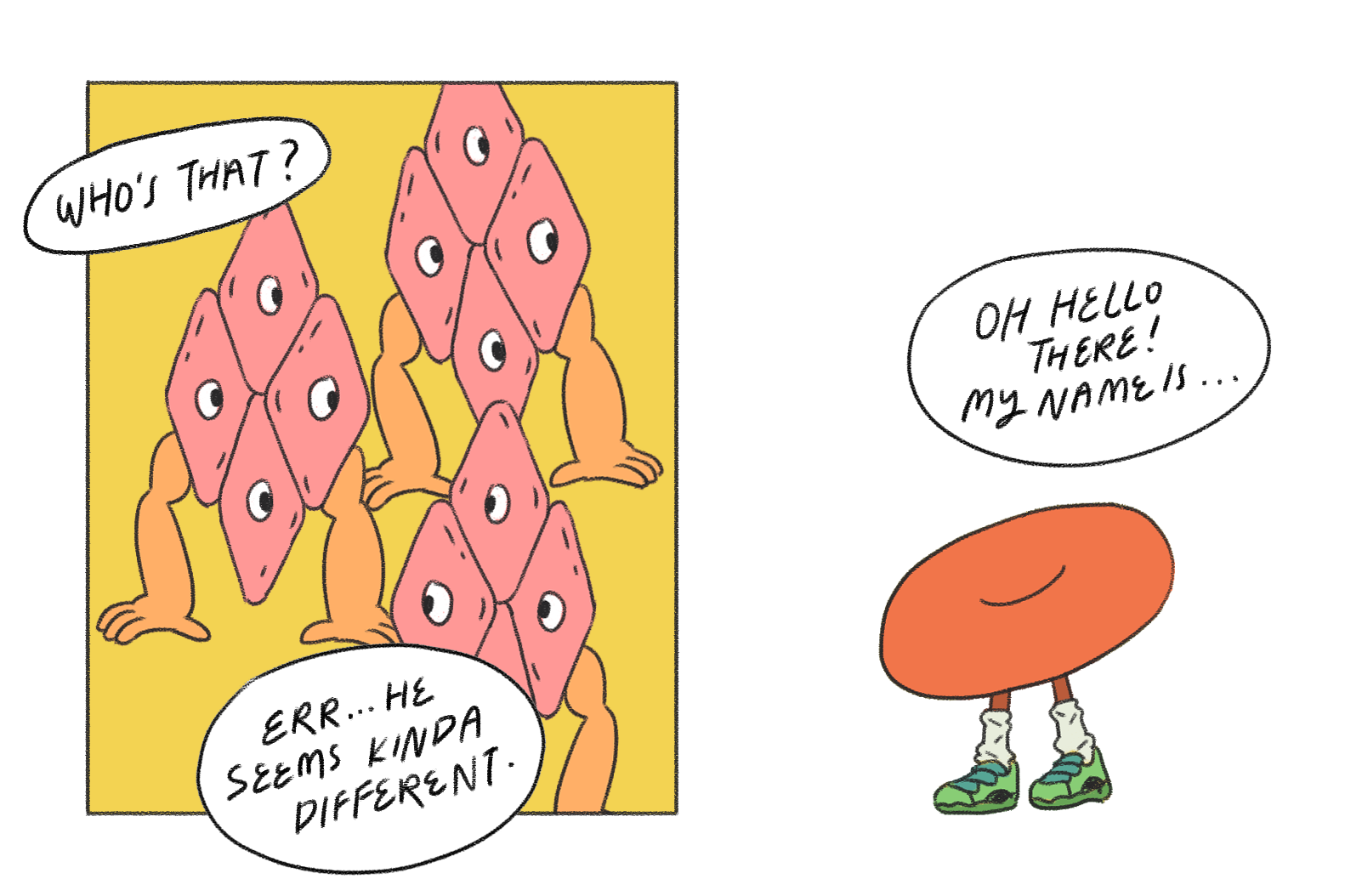
Every cell group has its own set of imperfections, regardless of whether its members can get along or not. But imperfections are part of what makes us human. Our imperfections provide an opportunity for us to grow when we let God enlarge our capacity to love.
“Cannot click” is a sad phrase that kills love for those we find challenging to embrace. God’s love is inclusive, especially to the outcast and marginalised. If we claim to be His children, we will love like He does.
The heart of the matter is whether we are willing to navigate through the discomfort and disagreement so that we can accept another person as genuinely as Jesus would.
We can’t choose our neighbours
I was personally challenged by a quote from the movie Miracles from Heaven: “We can’t choose our neighbours, we’re just asked to love them.”
In the movie, that was what Reverend Scott (played by John Carroll Lynch) said to the main character, Christy Beam (played by Jennifer Garner), who held a grudge against another church member for speaking about her ill daughter insensitively.
Likewise, I cannot choose who I want to lead or who I don’t want to mentor. I am just called to shepherd any sheep that God entrusts to me.
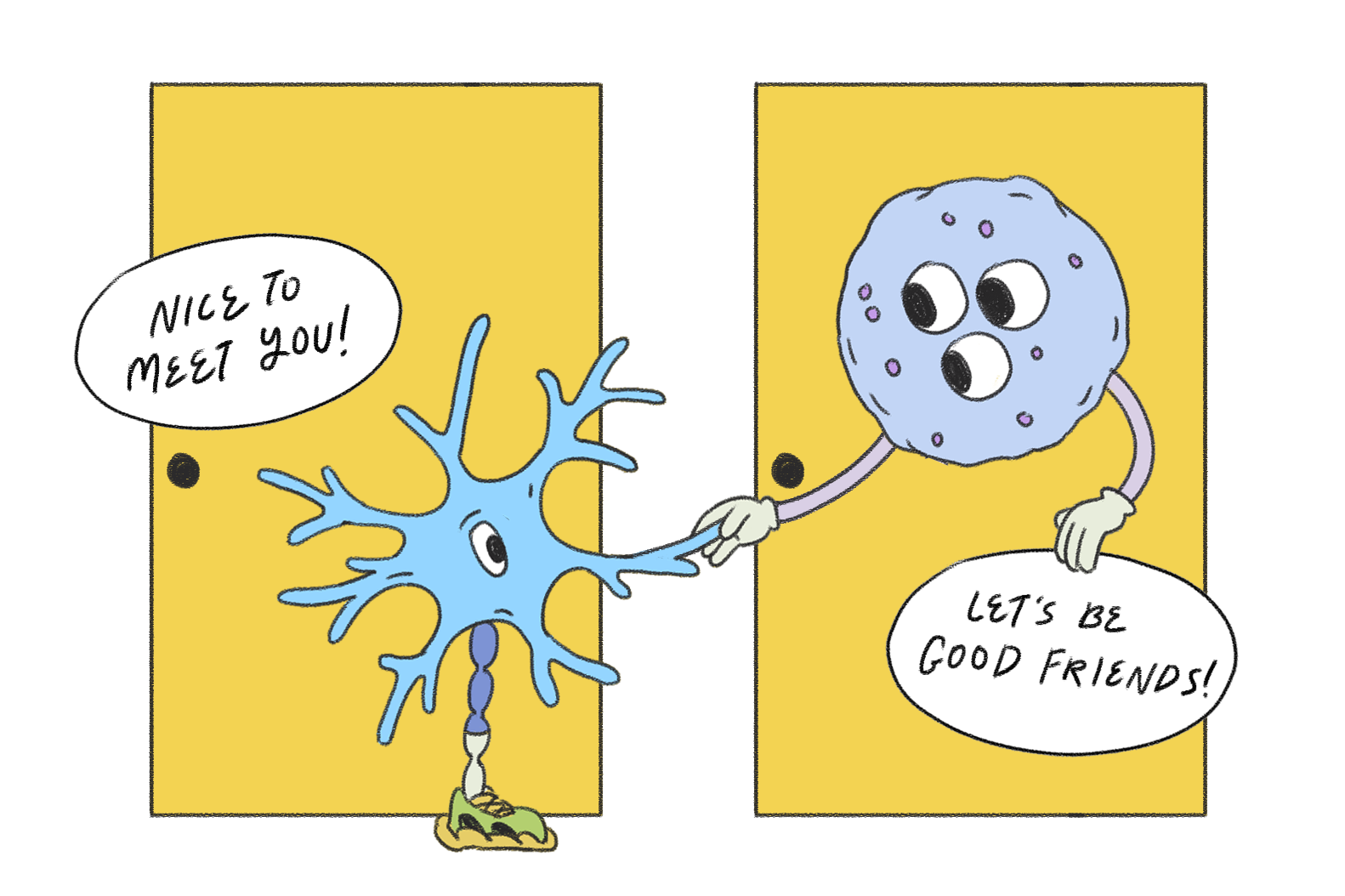
But here’s another question: what if our neighbour turns out to be our enemy?
Well, Jesus told His disciples to love even their enemies.
When God says He loves the world (John 3:16), He loves radically and wholly without exception. Jesus personally exemplified this, He did not love Judas less even at the end.
We cannot handpick our cell group. And even if we do, everyone will still bring their flaws and weaknesses along.
If we are choosing love only when it is easy and convenient, that is not the love of God — because His love is unconditional!
Every joint supplies
In that case, how do we yield to God and choose love when we feel that we struggle to get along with our cell group? For starters, here are three things we can do…
1. Be open to corrections and enlargement
There’s a Christian joke that goes, “I asked God to make me a more loving person, and He gave me people who are difficult to love.”
God refines our character in interesting ways. One way to develop humility is by being corrected, which is something not many of us would enjoy.
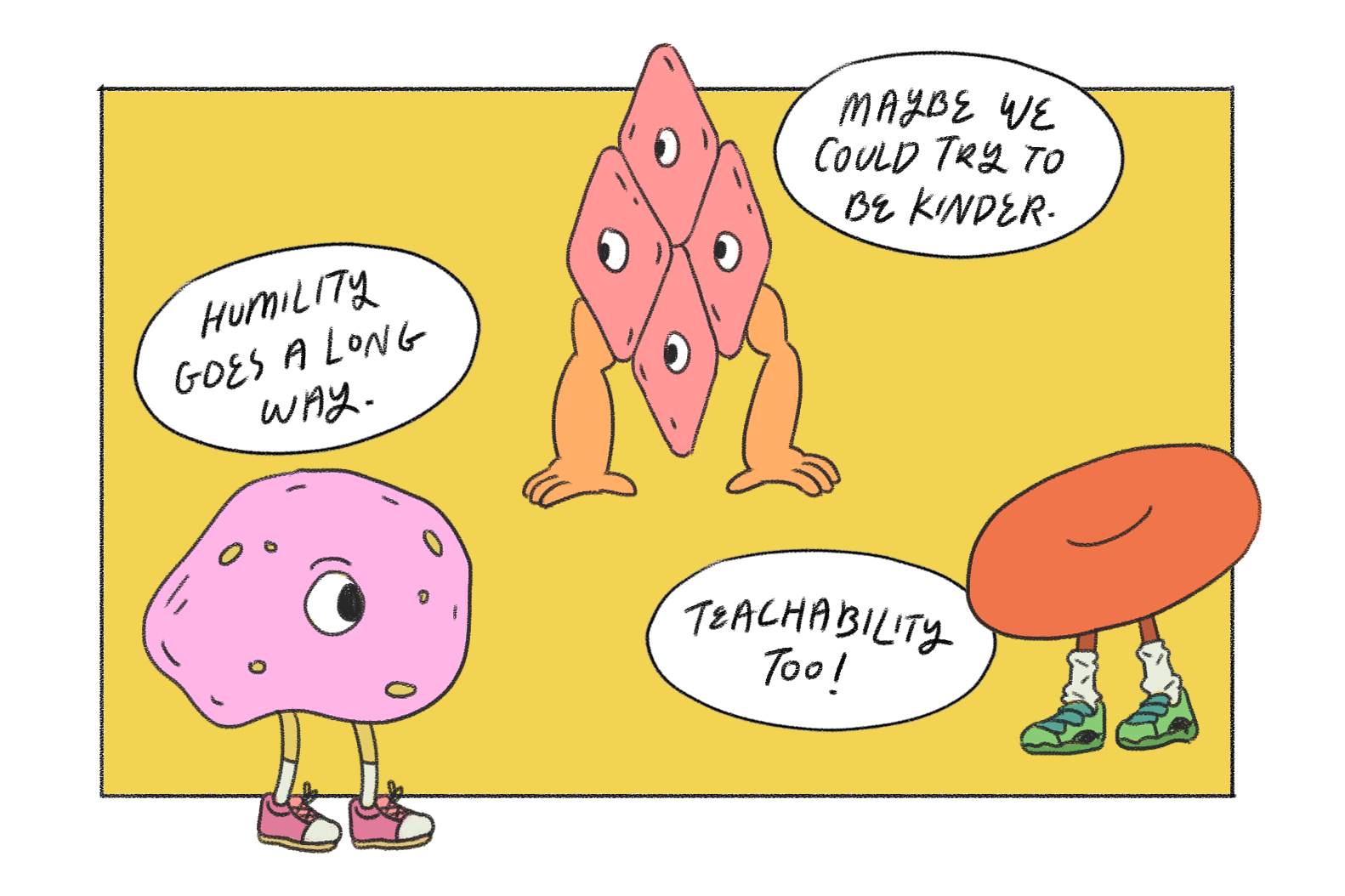
We also have to let God examine our hearts as well. For instance, are we carrying a critical spirit towards the cell group?
We are quick to see someone else’s flaws clearly, but when it comes to our own shortcomings we are all too often blinded by our own pride (Matthew 7:3-5).
Ask yourself and be truthful in your response: if someone corrects you for your attitude towards the cell group, will you be offended?
We need to recognise that correction does not equate to condemnation. When we are corrected, we are not being put down or “less” than others because the Bible promises that there is no condemnation in Christ.
Instead, correction gives room for humility to grow. If we want to see our cell group develop character and synergy, we first have to humble ourselves to acknowledge the imperfections among all of us.
Only then we will be teachable and pliable to the Lord’s stretching, as we learn to love one another.
2. Build one another up in love
Love is patient and kind, but it comes with discipline too. Many times, we are afraid to challenge one another in truth, even when we speak from a place of love. Yet, truth and love are both essential to personal growth.
So, even if you are younger, don’t let a feeling of inferiority prevent you from speaking truth in love to your leaders.
1 Timothy 4:12 encourages us, “Don’t let anyone look down on you because you are young, but set an example for the believers in speech, in conduct, in love, in faith and in purity.”
You can be an example to fellow believers and also your leaders!
Oftentimes, your leaders need your honest opinions for them to see with clarity.
So, learn to voice out your thoughts while holding a posture of submission. If you are unsure or unconvinced by certain things, ask and clarify!
Leaders are not always right, and leaders cannot lead a cell group properly if they are not given constructive feedback to help them improve.
There will be times when people fail and make mistakes, but keep an open mind to understand that we are all still learning. Be forgiving to your leaders and fellow friends in your cell group.
Instead of growing weary and frustrated, ask the Lord to help you in loving them more! Love builds up, and by choosing love, you are building character in people which will eventually bring a lasting impact on individuals and the cell group.
3. Bring the change you want to see
It takes two hands to clap. Let’s help our leaders: if we want to see a specific change in the cell group, let us be the first to bring about that positive change
If you want to see an active cell group chat, be the first to initiate conversations. If you want to build a culture of authenticity, be the first to open up and share. If you want the group to grow in numbers, be the first to bring a friend!
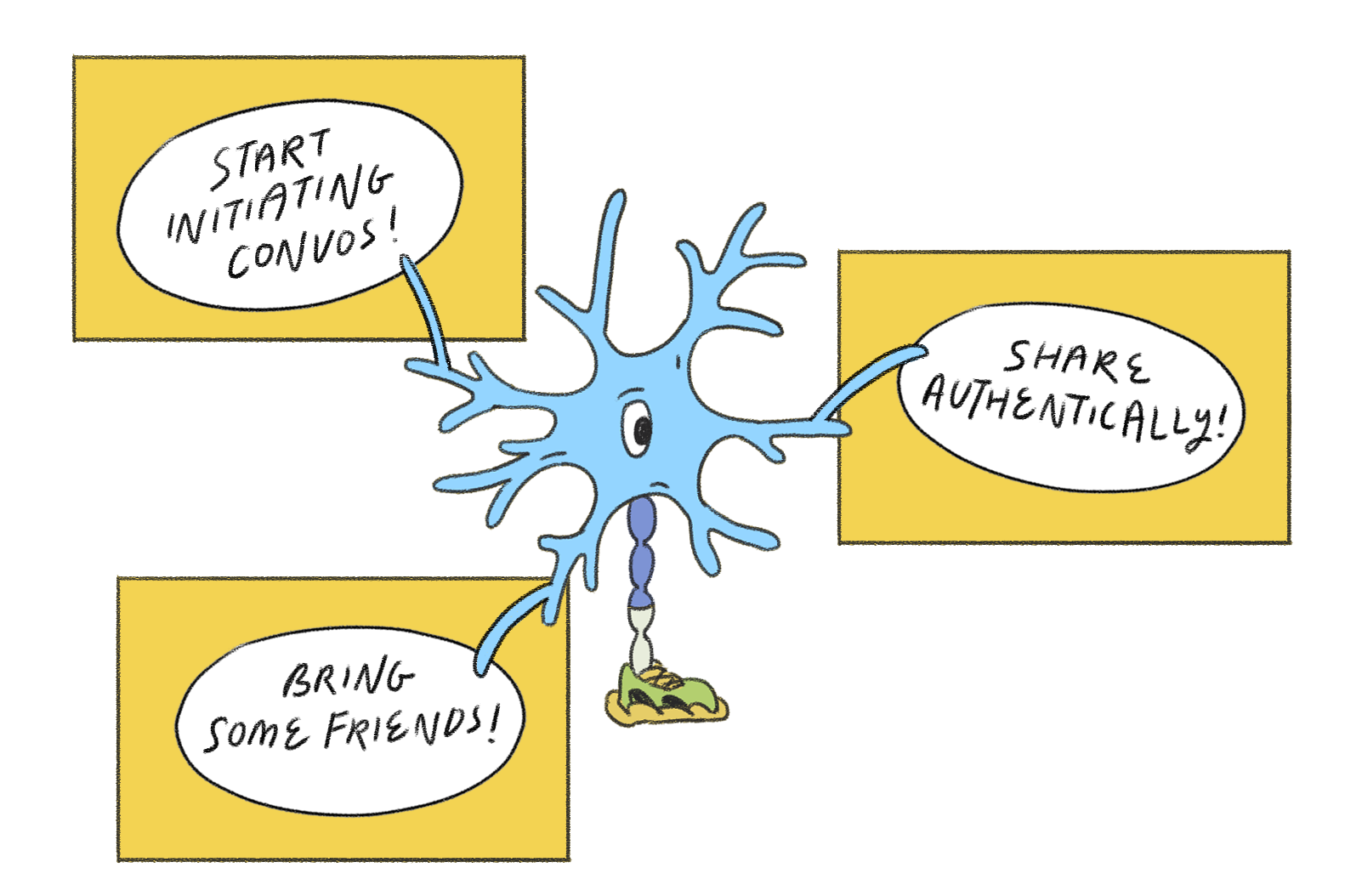
Never give up until you see godly change come to pass.
We must not be calculative about how much we give or initiate things, lest we fall into a cycle of bitterness and frustration.
Change requires time and effort, so press on and do not be disheartened when people are not used to the change — or even oppose it!
Jesus Himself had a cell group in His time on Earth, and His cell group was certainly not perfect.
Judas betrayed Him; James fell asleep during prayer time; Thomas doubted Him… every disciple had their imperfections.
It makes me think of an Easter musical that my church produced a few years back. I was especially entertained by this scene where the disciples were fighting over fishes and arguing over the breakfast money.
As hilarious as it was, I was quite certain that it was a realistic depiction of the disciples’ interactions with one another. They were people of different backgrounds and personalities — just imagine how John the Beloved would have felt when Peter impulsively cut off a soldier’s ear!
“Above all, clothe yourselves with love, which binds us all together in perfect harmony.” (Colossians 3:14)
In the same way, we are the modern disciples of Jesus. Conflicts and disagreements are bound to happen because of how uniquely different we are created to be by our Father God.
Still, we are called to love one another. By this love for one another, everyone will know that we are Jesus’ disciples (John 13:35).
God has placed special potential in every cell group to grow, so do not give up on your imperfect cell group.
Let God be the centre, He is the love that binds us all together in perfect harmony!
- Do you find it difficult to love your cell group?
- What changes do you want to see in your cell group?
- Is it aligned with what God wants? How does what you want line up with what He says in the Bible?
- How can you take the first step to bring about this change?


